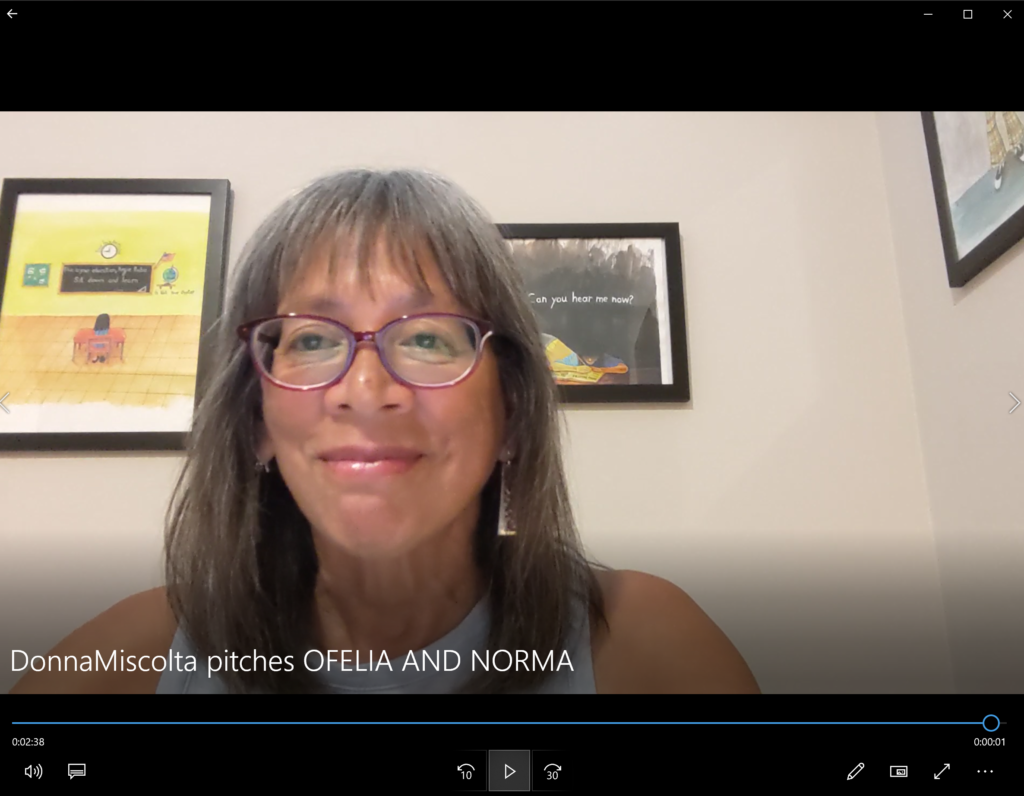Lessons from a techno-bumbler’s video pitch

I don’t get out much because there’s this virus out there that could infect my vaccinated self and potentially sicken me, not to mention make me a vector of contagion. So to break up my apartment-bound life where, after a morning bike ride, much of my day is spent at my laptop, I recently signed up for a writing conference. This way I could upend my routine by logging online at 6 am on a Saturday and totally trashing my normally scheduled biking time.
But hey, I had a discount code. Also, taking a workshop on writing the short form appealed to me because when I’m not trying to finish my new novel manuscript, I’m working on flash essays for my non-fiction project.
A week before the conference, I was notified that the workshop I had signed up for hadn’t received a sufficient number of registrants. Did I have a second choice? I hadn’t considered one and I briefly toyed with the idea of backing out altogether and instead embracing my pandemic-induced monotony.
But I felt I had committed to the conference and I knew how much work they entail for the organizers. Also, it turns out a cool box of swag is mailed to all participants. Thank you, Woodhall Press Conference.
I opted for the prose workshop and another opportunity (after the fabulous Macondo Conference last month) for feedback on sample pages from my current novel manuscript. Speaking of feedback, the conference offered a video pitch session. Participants were invited to submit a video of themselves pitching their manuscripts to be reviewed by a panel of editors for feedback. I figured, why not? Someday soon I’ll want to pitch this manuscript because I’m determined to finally get an agent.
It would seem a simple thing in this day and age to record a video of yourself squawking about the manuscript you want someone to make into a book. Even for a techno-bumbler like me. When it comes to breaking up your routine there’s nothing like using up an entire afternoon trying to produce a passable video selfie.
First I had to write the pitch that covers in a two-and-a-half-minute (or thereabouts) segment the required elements – in pithy, pitchy language. I wrote a slew of pithy things that of course exceeded the time limit when I practiced it, so I pared and sliced away at the multitudinous pithy lines until I came (close enough) to the time limit.
Then I had to figure out how to read the pitch without appearing to read it. I purchased a teleprompter app, but in my techno-averse hands and pitiable techno-karma, the lines would stop scrolling in the middle of my pitch. Again and again and again. I gave up and rigged my own feeble system. I perched my phone on top of a stack of books and right below it, I angled my laptop with the pitch open on the screen. The result: My eyes are not at “eye contact” level and it’s obvious that I’m reading from somewhere below the camera on my phone. Amateurish but not entirely risible.
During the conference pitch session, there was only time for the panel to watch and respond to four videos. Mine was not one of those selected. But all participants who submitted video pitches were later emailed comments.
Here’s my pitch with the feedback below it.
General feedback: The book sounds intriguing. The pitch could have a stronger logline, and the pitch could be tighter. What is interesting is the timely (and perhaps) timeless issue of body image. It is intriguing that the sisters gain and lose power as their weight and size change.
Feedback from a specific panelist: “I got lost when Ofelia inadvertently loses weight so Norma leaves and goes to a different school. I didn’t quite understand the logic of it. I then kept having difficulty putting the pieces together of the subsequent story beats to follow the overarching arc. Possibly reframe how or why they are separated for purposes of the pitch so it’s easier to follow the storyline.”
It’s the first time I had heard the term logline, which I guess is movie lingo for elevator pitch. Apparently, in all my paring and slicing of my pitch, I lost sight of that all-important one-sentence summary (main character, setup, central conflict, antagonist). I blame it on all the fuss and bother that went into figuring out how to do the video selfie. But doing it was a good lesson. May you learn from my errors.